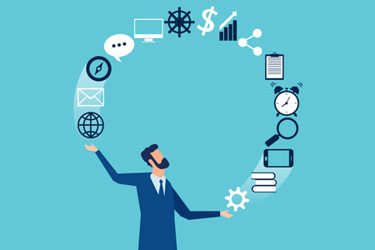How Ex-CDMO Hires Strengthen Innovator Companies
By Life Science Connect Editorial Staff

Working for a CDMO requires a broad skillset. While the high-activity CDMO environment prioritizes different end goals versus a pharmaceutical or biopharma sponsor, the skills necessary — and CDMO personnel’s accrued knowledge — can bring immense value to innovator companies.
However, innovator companies, which often are limited in terms of staff, budget, and resources, may benefit more from actually hiring these multifaceted individuals. For example, consider that many innovator companies not only may be novices in navigating the drug development gauntlet, they also may lack experience in vendor partner oversight. Individuals who have served a CDMO can offer insight into how CDMO manufacturing scheduling operates and how capacity is mapped.
As an innovator, it is critical to understand that availability: how far in advance the CDMO is booking and who controls that capacity. Resources with CDMO experience on your team can help to explain why certain decisions are made within CDMOs and can help guide the partnership toward mutually beneficial outcomes.
Also, while biopharma sponsors must be experts in their molecule(s) and pipeline, the ability to excel at a CDMO revolves around learning agility. People who have worked in the CDMO space typically have broad technical diversity due to their exposure to varied client projects and challenges, spanning small molecules, biologics, and more.
Former CDMO personnel also can bring leadership attributes to a sponsor organization, even if they did not serve in a “leadership” position at the CMDO. Consider that CDMO personnel deal with both internal and external conflicts daily: where to allocate limited resources, when to bill, etc. Minimizing overhead and maximizing profit while maintaining quality service is a delicate balance that inevitably leads to conflict.
Each conflict draws resources — time, money, personnel, or equipment — away from one client and provides it to another, so constant negotiation and conflict resolution is part of the job. Individuals must develop the savvy to champion their project or need. At a sponsor company, this skill is useful to resolve both internal disagreements and when negotiating with CDMO partners; sometimes the vendor’s needs do not align with those of the client, and a common ground must be attained.
Moreover, CDMOs, even smaller vendors, typically employ a diverse range of individuals to maximize in-house knowledge, skills, and perspectives. This provides CDMO personnel with valuable experience in working alongside, or managing, different personalities and individuals who emphasize different priorities. Because of this dynamic, CDMO hires often come with a huge network of contacts within other CDMOs and other fields.
Further, the “soft skills” that former CDMO personnel can bring to an innovator company warrant mention. These are harder to pin down specifically, but they can include relationship-building on the golf course or multitasking on various levels. Multitasking at a CDMO is different from multitasking at an innovator company. Personnel often manage multiple projects and multiple clients simultaneously, with each demanding that person’s full attention. Consider, too, that because CDMO personnel interact with different personalities and projects all the time, they have ample opportunity to refine these skills.
Finally, anyone who has worked at a CDMO is likely to state it is a “survival of the fittest” environment: the cream typically rises to the top. Thus, individuals who have led CDMOs can offer a lot of business insight to sponsor programs. Innovator companies consisting mostly of experts in engineering or science-based roles may lack exposure to such business acumen otherwise.
In summary, the fast-paced CDMO environment demands individuals be able to think on their feet, wear many hats, be accountable to both scientific and business goals, and work well with a diverse group of colleagues and partners. Former CDMO personnel can augment an innovator’s capabilities not only through physical resources but in terms of technical and strategy inputs — driving the positive and transparent vendor relationships that are an underprioritized element of drug development success.
However, Should You Hire Talent Away From Your CDMOs? makes an equally compelling argument that effectively poaching talent form your CDMOs is a zero-sum game to be avoided. The decision never takes place in a vacuum, and its impacts beyond the current project, fiscal year, or partnership must be carefully considered.
This text is derived from discussion at our second OP-Virtual, where Outsourced Pharma Chief Editor Louis Garguilo invited individuals with professional experience at both CDMOs and biotechs to share advice and some best practices gleaned from working both sides of outsourcing partnerships. Additional articles from that forum, exploring how pharmaceutical/biopharmaceutical sponsors can better manage their CDMO partners, can be found here and here.
